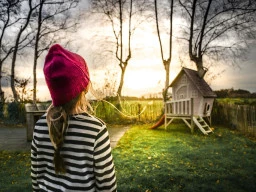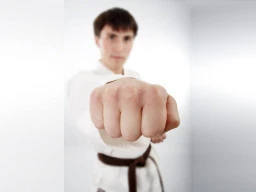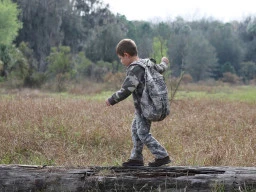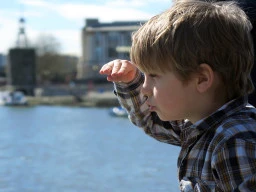
Street Fighting and Self-Defence
As I have first mentioned, there are no rules for self-defence and every situation is different and dynamic. Use your head (in more ways than one), be situationally aware, stay dynamic and adaptive, and I truly hope that you never have to use your Tae Kwon Do skills or self-defence techniques in real life!
Read more
Self defence: A lesson in safer living
Self Defence is much less about one's ability to fight and more about knowledge of one's self and environment. We are born with a natural instinct for survival and self preservation but in our modern 'civilised' society much of this instinct has been conditioned out of us, particularly in women. This article
Read more
Why Choose Progress Martial Arts?
Choosing the right martial arts school is an important decision. Picking a quality school tailored to your needs with good instructors will ensure you develop the skills and self-defence capabilities you desire.
Read more
Self Defence For Kids
Teach your kids self defence! <br><br> Knowing that your kids are safe on their own is one of the best feelings ever, right?
Read more
Thinking Ahead with Rhee Tae Kwon Do
Finally, the best of Martial Artists will appear to be only 1 or 2 steps ahead, but in reality they are more than 10 moves ahead.
Read more
Rhee Tae Kwon Do and Mental Health
Just as the mind grows stronger and more resilient through challenges, our self-esteem also grows through overcoming challenges and being able to reach new levels of accomplishment and achievement.
Read more
The Empowering Choice: Krav Maga as an Effective Self-Defence System for Kids and Teens
Krav Maga places a strong emphasis on teaching essential self-defence techniques that are easy to learn and apply, even for children and teenagers. These techniques include simple strikes, escapes from common holds, and defensive tactics against various types of threats. By mastering these fundamental skills, kids and teens can develop a strong foundation in self-defence that can be built upon as they grow and progress.
Read more
How to help your kid find their balance in life
There are many ways in which we try to balance our busy lives, and keeping a balance between our physical, mental and spiritual selves is an important start to maintaining overall balance in life. This quick tip will help your kid to find more balance in their life.
Read more
Will learning Rhee Tae Kwon Do make my child a bully?
These foundations which are part of our pledge and teaching philosophy, ensure that all our students will develop a strong moral compass and will only put the Art of Self-Defence to use when absolutely necessary.
Read more
Life Lessons and Character Growth: Karate's Impact on Children
Karate provides a structured system of belts, giving children tangible goals to strive for. Each new belt represents progress and achievement, teaching kids the value of setting goals and working diligently to attain them. This goal-setting mentality translates into their academics and other extracurricular activities.
Read more
Self defence for kids - recognising danger
Teaching our children (and ourselves) to recognise what is “normal” in our homes, schools, and local community can make it a lot easier to spot incongruities that may signal a potential danger or dangerous situation. This article outlines some potential danger signs that your child could be more aware of.
Read more
How to choose a self defence school
Not every martial arts school teaches what they say they do. There are many definitions of what is taught - this article looks at what these definitions are, popular misconceptions, how you can get the most out of your training and what to look for when selecting a self-defence school.
Read more
Karate 101: Introduction to Martial Arts for Kids
Martial arts, including karate, are renowned for instilling confidence and self-esteem in children. Through consistent training and overcoming challenges, your child will gain a sense of achievement, boosting their self-confidence.
Read more
Unleashing the Power Within: How Karate Helps Your Child Mentally
The shared journey of learning karate and the support from peers create strong bonds and friendships. This sense of belonging and support network promotes positive mental health, as children feel accepted and valued within the karate community.
Read more
Why Kids in Australia Love Martial Arts Fitness
Participating in martial arts often involves group activities, encouraging social interaction among children. Kids make new friends, share experiences, and learn the importance of teamwork and cooperation. This social aspect enhances their interpersonal skills and helps them grow into well-rounded individuals.
Read more
5 Martial Arts Tips for Beginners
As a parent or caregiver, your support, encouragement, and guidance are invaluable in making this journey a success. Be actively involved, communicate with instructors, and motivate your child to embrace the values and teachings of martial arts.
Read more
Self-Defence Classes & Lessons for your Children
The benefits of self-defence classes extend far beyond physical techniques, shaping children into confident, responsible, and resilient individuals.
Read more
Choosing the Right Karate Dojo for Your Child
Many dojos offer trial classes to allow potential students to experience the training firsthand. Take advantage of these opportunities to see how your child responds to the environment and teaching style. Trial classes can help you make an informed decision about whether the Karate dojo is the right fit for your child.
Read more
Karate and Coordination: Enhancing Motor Skills in Kids
Introducing your child to the world of karate through local Karate Clubs or Karate Schools can be a rewarding decision for both their physical and mental development.
Read more
What is Rhee Tae Kwon Do?
Rhee Tae Kwon Do is most assuredly a dynamic and extremely effective martial art, more valid in the violent times we live in than ever before. But the art reaches much further than mere combat effectiveness. The discipline, mental training, and varied techniques of Rhee Tae Kwon Do also provide the ground for engendering in the practitioner a strong sense of justice, fortitude, compassion, humility, and resolve.
Read more